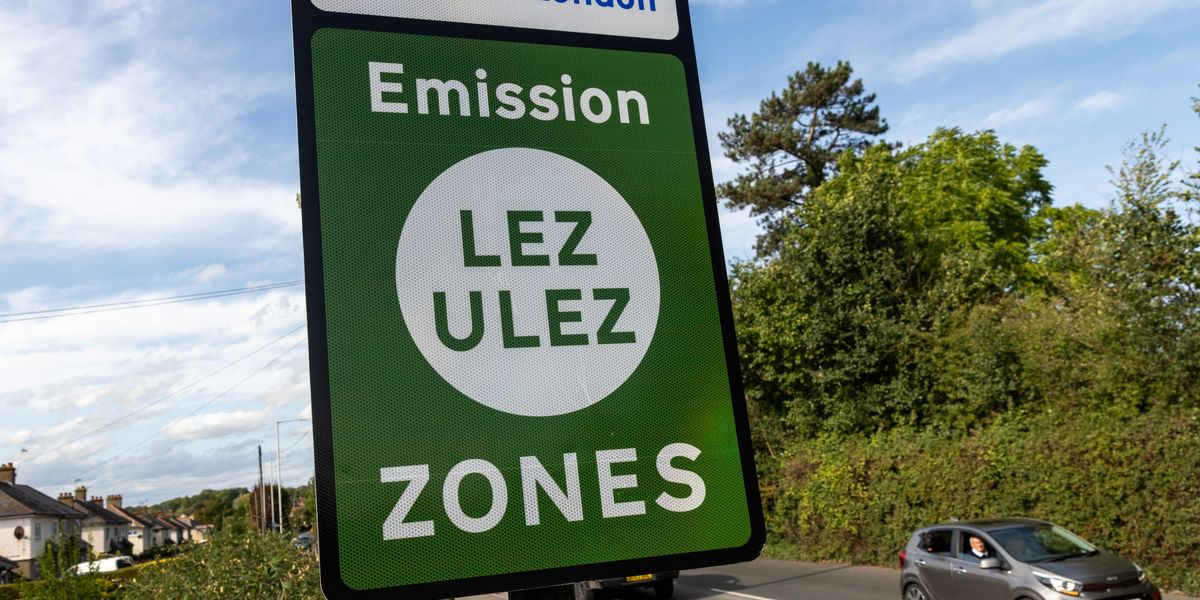The ULEZ Charge Controversy: A Father’s Ordeal with Debt Collectors
In an age where technology simplifies many aspects of our lives, it can also complicate them in unexpected ways. This is the story of Steven Bortone, a 40-year-old father of three from Southend-on-Sea, who found himself embroiled in a distressing battle with Transport for London (TfL) over a seemingly minor administrative error. His experience highlights the challenges many face when navigating the complexities of urban driving regulations and the repercussions of miscommunication.
The Incident: A Simple Mistake
On July 1, 2023, Bortone drove into Barking, East London, to volunteer at a science club. In a rush, he accidentally paid the £12.50 ULEZ charge for the previous day instead of the day he was actually driving. This seemingly trivial mistake spiraled into a nightmare when he received a penalty charge notice (PCN) on July 7, claiming he had not paid the ULEZ charge for that day.
"I was shocked," Bortone recalled. "It was just an error made on the day – and now, over a year later, I’m still battling the fine. I accidentally paid for the wrong day." Despite his immediate payment, the system had registered it incorrectly, leading to a series of escalating consequences.
The Appeal Process: A Frustrating Journey
Upon receiving the PCN, Bortone promptly contacted TfL to explain the situation. He was assured by a helpdesk representative that mistakes happen and was advised to submit an online appeal by July 31. However, despite his timely submission, he soon found himself receiving letters from debt collection agencies in February 2024, demanding a staggering £364.
"I was flabbergasted," he said. "I had already appealed the fee, and now I was facing this additional charge." Bortone reached out to the Traffic Enforcement Centre (TEC) to clarify his situation, but the responses he received were less than reassuring.
The Debt Collectors Arrive
As the situation escalated, debt collectors arrived at Bortone’s doorstep. Armed with proof of his payment, he presented his case, hoping for a resolution. "They told me it looked like I’d made a genuine effort to resolve this – and they walked off with my receipt," he explained. For a brief moment, he felt a sense of relief, believing that the matter was finally settled.
However, this relief was short-lived. Just days later, he received a text indicating that the fine had not only remained outstanding but had also increased to £589. The stress of the situation began to take a toll on Bortone, who described experiencing "sleepless nights" over the ordeal.
The Threat of Repossession
The situation took a darker turn when Bortone received a letter from TfL dismissing the evidence he had provided. The letter contained threats of repossession of his car and household items, as well as a potential county court judgment for allegedly "refusing" to pay the fine. "I need TfL to review my case urgently," he pleaded. "The payment was taken down wrongly, but I did pay for a day of parking."
Bortone’s situation is not just about a fine; it represents the broader issues many face when dealing with bureaucratic systems that can sometimes feel impersonal and unforgiving. As a father of three children aged 15, 13, and 10, he expressed his frustration, stating, "I’ve been so ill and stressed about it. I’ve got three kids to pay for – I’m just trying to do the best I can."
TfL’s Response
In response to Bortone’s plight, a TfL spokesman stated, "Bortone did correctly receive a penalty charge notice (PCN) as he didn’t pay the ULEZ charge for the correct day or within the required period." They claimed that they had requested proof of payment but had not received a response to their notices, which led to the fine’s increase.
However, the spokesman also acknowledged Bortone’s initial attempt to pay the charge, stating, "As Bortone did originally attempt to pay the charge, we are happy to settle the case on receipt of the original penalty charge." This statement raises questions about the effectiveness of communication between TfL and the public, especially in cases where genuine mistakes occur.
Conclusion: A Call for Understanding
Steven Bortone’s experience serves as a cautionary tale about the potential pitfalls of urban driving regulations and the importance of clear communication between authorities and citizens. As he continues to navigate this challenging situation, his story underscores the need for empathy and understanding in bureaucratic processes, particularly when individuals are acting in good faith.
In a world where administrative errors can lead to significant stress and financial burden, it is crucial for organizations like TfL to consider the human element behind each case. As Bortone fights for a resolution, he hopes that his experience will prompt a review of how such situations are handled in the future, ensuring that no one else has to endure a similar ordeal.
